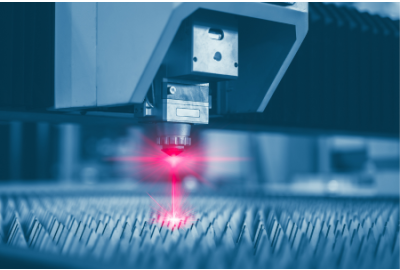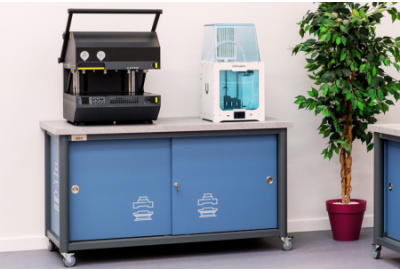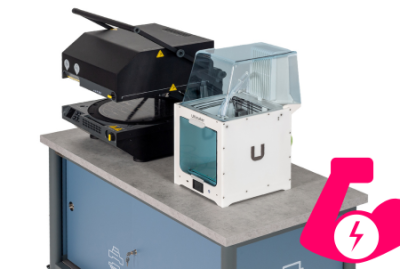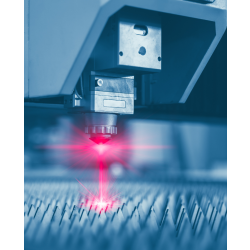

Why teach industrial technology in your classroom?
How digital manufacturing in a classroom can impact students' future careers.
Publication on digital manufacturing and the challenges it presents to education mentions that "new kinds of learning and training environments can support engineering education." The evolving world of digital technologies presents opportunities and space for the adaptation of new equipment, resources, and computer-assisted instructions to supplement teachers’ instruction.
This, in turn, increases schools' levels of digitalisation. To prepare students to be digital-transformation-ready, the integration of advanced technologies within the learning environment becomes crucial.
Let's explore why your students should not miss any opportunities to experience the biggest and most impactful technologies of the century, and how it will benefit their future.
Reason No 1 - Realistic and applicable practices.
Teaching industry-standard processes is a vital introduction to manufacturing, widely employed across various fields in everyday life. Exposing student to realistic and applicable techniques ensures they are well-prepared to join the workforce and their perception of modern manufacturing is realistic.
Reason No 2. Headstart position.
Equipping students with a profound understanding of digitalised processes gives them a significant advantage! Learning essential skills in school provides an invaluable headstart, positioning them as top candidates when pursuing opportunities with companies that look for knowledge of manufacturing processes. The earlier the exposure – the better the preparation for joining the evolving workforce.
Reason No 3 – Confidence navigating the industry.
Learning digital manufacturing in schools makes it easier for students to meet the demands of the industry, but also provides a solid knowledge background. Students can navigate and contribute to the field with confidence, setting themselves for quicker progress and success.
Reason No 4 – Continuous development.
Learning digital skills in school can make it easier for students to adapt to future changes. In the era of progressive technology, constant upskilling becomes an organic part of the personal development journey. Thanks to integration of digital tools in the classroom, teachers drive students to stay ahead of the curve, continuously learn and equip them for the dynamic demands of a digital landscape.


Manufacturing processes have advanced, moved away from more manual, human driven processes to machines being the automation front runners. Sustainable manufacturing, biomedical engineering, robotics engineering and many, many more are just the tip of the iceberg of the key building blocks of manufacturing that affects our everyday life. We are surrounded by computers, cars, toys and food that are manufactured. The process is evolving, technology is on the lookout for more efficient, faster, and cost-efficient solutions. Innovation begins with education.
Sources for this blog:
Timotheou, S., Miliou, O., Dimitriadis, Y., Villagrá Sobrino, S., Giannoutsou, N., Cachia, R., Martínez Monés, A., Ioannou, A., (2022, November ). Impacts of digital technologies on education and factors influencing schools' digital capacity and transformation: A literature review. Springer Link. URL https://link.springer.com/article/10.1007/s10639-022-11431-8
Marr, B. (2022, January 25), The 10 Biggest Future Trends In Manufacturing, Forbes. URL: https://www.forbes.com/sites/bernardmarr/2022/01/25/the-10-biggest-future-trends-in-manufacturing/













